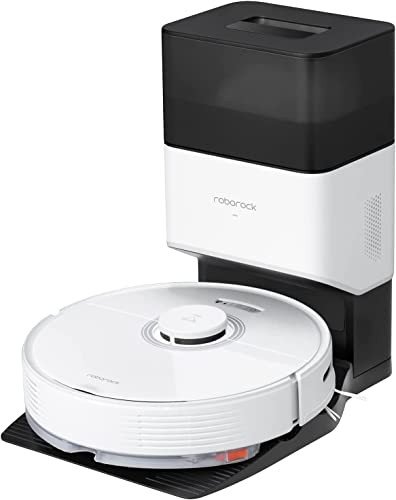Robotic Vacuum Cleaner Comparison: The Future of Home Cleaning
In the last few years, robotic vacuum cleaners have changed the way we maintain cleanliness in our homes. With developments in technology and the incorporation of synthetic intelligence, these gadgets have actually developed from mere novelty items to necessary family home appliances. This article supplies a comprehensive comparison of a few of the leading robotic vacuum on the market, assisting consumers make notified choices when selecting a design that suits their needs.
Understanding Robotic Vacuum Cleaners
Robotic vacuum are self-governing devices created to tidy floorings immediately. Equipped with sensors, they browse around challenges and change their cleaning routes for optimal efficiency. The key features that distinguish numerous models consist of suction power, battery life, app connection, navigation innovation, and price.
Secret Features to Consider
When comparing robotic vacuum, potential buyers must take into account the following factors:
- Suction Power: Measured in Pascals (Pa), suction power figures out the efficiency of getting dirt and particles.
- Battery Life: The length of time a vacuum can operate before needing a recharge significantly affects its cleaning performance.
- Navigation Technology: Models may utilize easy random navigation or innovative mapping technologies (like LIDAR) that allow them to create a map of the home.
- Smart Features: Connectivity to mobile phone apps or smart home systems can enhance use and control.
- Filter Type: HEPA filters are recommended for allergy sufferers, as they trap allergens and improve air quality.
Comparison of Top Robotic Vacuum Cleaners
Below is a comparison table of a few of the best robotic vacuum cleaners offered in 2023:
| Model | Suction Power (Pa) | Battery Life (min) | Navigation Technology | Smart Features | Price (GBP) |
|---|---|---|---|---|---|
| iRobot Roomba i7+ | 1700 | 75 | Smart mapping | App control, voice command | ₤ 949 |
| Roborock S7 | 2500 | 180 | LIDAR | App control, multi-floor | ₤ 649 |
| Neato D7 | 2000 | 120 | LIDAR | App control, zone cleaning | ₤ 599 |
| Ecovacs Deebot T10 | 3000 | 150 | Smart mapping | App control, room detection | ₤ 799 |
| Shark IQ Robot | 1200 | 90 | Random | App control, self-emptying | ₤ 399 |
Explanation of the Table
- iRobot Roomba i7+: Known for its robust cleaning capability, it includes smart mapping technology that permits it to designate specific areas for cleaning. Its self-emptying feature is a plus for convenience.
- Roborock S7: This design masters suction power and battery life, making it perfect for larger homes. Its LIDAR innovation assists develop an efficient cleaning path, and it can vacuum and mop simultaneously.
- Neato D7: The D-shape style enables much better corner cleaning, and it includes strong suction power. Its LIDAR navigation enables it to map out cleaning locations accurately.
- Ecovacs Deebot T10: Boasting the highest suction power and advanced navigation, this model can handle several floorings successfully. It's a versatile choice for families with differing floor types.
- Shark IQ Robot: A budget-friendly option that still provides smart features. Its self-emptying capability and app combination make it a practical option for those searching for a solid cleaning buddy without breaking the bank.
Benefits of Robotic Vacuum Cleaners
Robotic vacuum cleaners provide numerous advantages that add to their increasing appeal among customers:
- Time-Saving: Automated cleaning allows users to maximize important time that can be invested in other activities.
- Convenience: Many designs can be arranged by means of apps to clean at particular times, lowering manual effort.
- Availability: They can reach under furniture and in tight areas where conventional vacuums may have a hard time.
- Daily Maintenance: Regular use of robotic vacuums can assist keep a regularly clean environment, promoting much better general home health.
FAQs About Robotic Vacuum Cleaners
1. How frequently should I run my robotic vacuum?
It is suggested to run the robotic vacuum at least 2-3 times a week to maintain cleanliness, though everyday usage can be beneficial, specifically in homes with animals or high foot traffic.
2. Do robotic vacuums work on carpets?
Yes, many robotic vacuums are developed to work on carpets, however efficiency might vary based upon the design's suction power and brush type. Search for models specifically pointed out as effective for carpets.
3. Can robotic vacuums clean pet hair?
The majority of robotic vacuums can successfully get pet hair, but those with strong suction and tangle-free brush designs are particularly well-suited for this job.
4. How do I preserve my robotic vacuum?
Regular maintenance includes cleaning the brushes and sensing units, clearing the dustbin, and periodically changing filters to make sure optimal performance.
5. Are you could try here ?
While they tend to be more costly than traditional vacuums, the benefit, effectiveness, and time-saving aspects make them a worthy financial investment for many families.
The market for robotic vacuum cleaners continues to broaden as innovation progresses, offering consumers a range of choices to match different cleaning requirements and budgets. By carefully considering functions such as suction power, battery life, and smart abilities, users can select a model that aligns with their way of life. Whether for convenience, ease of usage, or remarkable cleaning performance, robotic vacuums are certainly improving the future of home cleaning.

